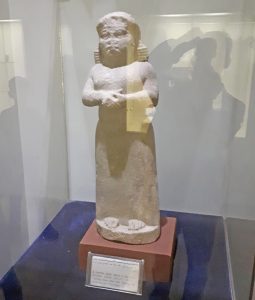This week’s Books of the Month is The Origin of the Family, Private Property, and the State by Frederick Engels, first published in 1884. Engels was the lifelong political collaborator of Karl Marx in founding the modern international communist movement. The excerpt is from the introduction by Evelyn Reed, author of Woman’s Evolution and other works developing Engels’ pioneer work on the birth of the oppression of women. Copyright © 1972 by Pathfinder Press. Reprinted by permission.

Although the book was not published until after Marx’s death, it was, as Engels said, a joint project born from the constant interchange of views over decades between the two men on the origins of civilization and its institutions. Maxim Kovalevsky, the Russian ethnologist, had brought a copy of [Lewis] Morgan’s book from the United States to England for Marx to read. Marx immediately began making notes on it to spell out his own conclusions. Utilizing these fragmentary materials, Engels carried out the assignment that his collaborator had initiated, as he had done for the unfinished second and third volumes of Capital.
Both men were struck by the fact that Morgan had in his own way taken a materialist approach to the study of primitive society. Through his careful research, pursued over forty years, Morgan unwittingly spotlighted the fact that the key institutions of civilized society — the family, private property, and the state — were nonexistent in prehistoric life. These topics became the title of Engels’s book.
Morgan’s data confirmed the Marxist principle that social institutions are not unchanging or eternal but come into existence at certain periods of history as a result of specific socioeconomic conditions. Engels gave unstinting praise to Morgan’s thesis that the maternal gens or clan preceded the father-family in history, proving that even the family institution is no exception to that rule. This discovery, he said, held the same importance for anthropology as Darwin’s theory of evolution had for biology and Marx’s theory of surplus value for political economy. …
Morgan and his school wrote during the time of Darwin when the theory of evolution was first enunciated and its fresh breezes were sweeping the western world. Just as Darwin had sought to uncover the processes of organic evolution, the pioneer anthropologists searched for the origin and evolution of social life. They paid considerable attention to the activities of human beings in procuring the necessities of life, and by studying the advances made in the productive forces, sought to chart the successive stages of social development. By these means Morgan delineated the three main epochs of human history: savagery, barbarism, and civilization. (Morgan derived these terms from earlier scholars and did not give them any pejorative sense. He had the highest regard for the achievements of precivilized peoples.)
In savagery, the economy was founded upon food-gathering and hunting, although simple garden-culture made its appearance toward the end of this period. Barbarism began with the introduction of agriculture and stock-raising, which provided a surplus of food for larger populations, greater productivity, and a higher culture. Civilization was ushered in with the development of metallurgy, trade, and other major advances.
Although some uncertainty remains on the exact time scale of these three epochs, they can be approximately measured as follows: Savagery began with the emergence of the first humans (or hominids) from our ancestral branch of the anthropoids about a million years ago. Barbarism came in about eight thousand years ago, and gave way to the first urban populations from Egypt through Mesopotamia and India to China. The Greek and Roman city-states of some three thousand years ago represent the beginning of Western civilization. The period of savagery, therefore, was by far the longest epoch, lasting for more than 99 percent of human existence on earth, while the two later periods of barbarism and civilization together cover less than one percent.
But the pioneer anthropologists did more than disclose this uneven tempo of progress. They discovered that primitive society was different from civilized society in every major respect. Engels shows in his book how and why they were opposite socioeconomic systems. Civilized society is founded on the private ownership of property; it is class divided, with a wealthy possessing class exploiting the working mass. A state apparatus enforces this rule of the rich. It is characterized by inequalities of all kinds, economic, social, and sexual. Male supremacy and female inferiority are integral features of this patriarchal class system.
Savage society, on the other hand, was based upon the collective ownership of the means of production, cooperative social relations, and complete equality in all spheres of life, including sexual equality. Due to the absence of private property, such key institutions of the private-property system as the state and the patriarchal family were nonexistent. Tribal society was a self-governing community in which the elected chiefs claimed no superiority to any other members. …
One of its most striking features was the influential and esteemed position of women. Whether savage society is called a clan commune, a tribal commune, or a matriarchal commune, it stands in the sharpest contrast to civilized patriarchal class society which supplanted it. …
This came about through the rise of private property and the unleashing of new social forces that gained ascendancy in the later stages of barbarism. With the advent of civilization and class society, the twin changes were consummated: the private-property system was victorious and women plummeted from their former high status to become the oppressed sex of patriarchal society.
The exceptional value of Engels’s exposition is that he links together these two epoch-making developments. He clarifies the causes and consequences of the social upheaval that gave the wealthy class its exploitative power over the working people and in the same process brought about the “historic defeat” of the female sex.
Morgan, [Edward] Tylor, and the other pioneers had opened up immense possibilities for uncovering both the character of ancient society and the hidden history of women. … With the added dimension of the contribution made by Engels, certain conclusions become obvious. Among them is the fact that it will require a new social change, no less fundamental, to bring about the liberation of the working people and the women.

